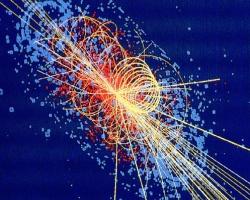The biggest experiment in particle physics, the Large Hadron Collider, starts this summer in Switzerland. The goal is to find signs of an elusive particle called the Higgs boson—also known as the “God particle” because it might ultimately lead to a grand theory of the universe. What impact will the experiments have on our ideas of the cosmos and our place in it? To find out, NEWSWEEK’s Ana Elena Azpurua spoke about science and religion with theoretical physicist and Nobel laureate Steve Weinberg at the University of Texas in Austin. Excerpts:
After this experiment, will we have a final theory of how the universe was created?
It is possible this experiment will give theoretical physicists a brilliant new idea that will explain all the particles and all the forces that we know and bring everything together in a beautiful mathematically consistent theory. But it is very unlikely that a final theory will come just from this experiment. If betting, I would guess it won’t be that easy.
As we come closer to developing an ultimate theory of the universe, how will this impact religion?
As science explains more and more, there is less and less need for religious explanations. Originally, in the history of human beings, everything was mysterious. Fire, rain, birth, death, all seemed to require the action of some kind of divine being. As time has passed, we have explained more and more in a purely naturalistic way. This doesn’t contradict religion, but it does takes away one of the original motivations for religion.




